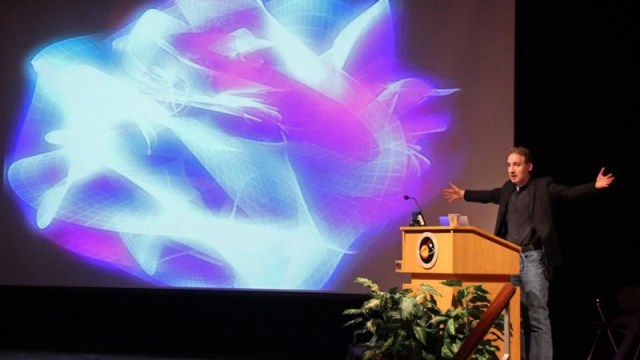Which COVID-19 personality are you?

Credit: deagreez on Adobe Stock
- New research by Mimi E. Lam at the University of Bergen explores the different “personality types” that have emerged in response to the COVID-19 pandemic.
- According to Lam, recognizing various COVID-19 identities can refine forecasts of SARS-CoV-2 transmission and impact.
- Global Solutions Initiative, Population Matters, and AME explore how the world (and society) has changed due to COVID-19.
Which COVID-19 personality are you?
New research by Mimi E. Lam at the University of Bergen (Human and Social Sciences Communications) explores the different “personality types” that have emerged in response to the COVID-19 pandemic.
Lam explains to Eurekalert: “…the COVID-19 pandemic reminds us that we are not immune to each other. To unite in our fight against the pandemic, it is important to recognize the basic dignity of all and value the human diversity currently dividing us.”
According to Lam, “Only then, can we foster societal resilience and an ethical COVID-19 agenda. This would pave the way for other global commons challenges whose impacts are less immediate, but no less dire for humanity.”
There are 16 different COVID-19 personality types, and they include the following:
- Deniers — Individuals who downplay the viral threat and promote a kind of “business as usual” lifestyle.
- Spreaders — Individuals who believe spreading the virus could actually be positive. These are individuals who believe in “herd immunity” and that passing the virus around will eventually allow things to return to normal.
- Harmers — Individuals who intentionally attempt to harm others by spreading the virus (via coughing or spitting, not wearing masks, licking various public surfaces, etc.).
- Realists — Individuals who recognize the reality (and potential harm) of spreading the virus and attempt to adjust their behaviors to not spread the virus.
- Worriers — Individuals who stay informed and safe to manage their uncertainty and fear. These are also individuals who will have a lot of anxiety over the current state of the virus at all times.
- Contemplators — Individuals who have taken “quarantine times” to isolate and reflect on their own lives. These are individuals who may attempt to better themselves (focusing on new hobbies or skills) during times of isolation.
- Hoarders — Individuals who panic-buy and hoard products (such as toilet paper) in an attempt to quell their panic and worry over the spreading of the virus.
- Invincibles — Individuals who believe themselves to be immune to the virus. These are also individuals who claim a kind of “if I get sick, I get sick” kind of attitude, not taking time to reflect on the idea that they could be carriers of the virus, spreading it to others.
- Rebels — Individuals who defiantly ignore social distancing measures and various other rules put into place to protect the general public.
- Blamers — Those who fault others for their fears and frustrations.
- Exploiters — Those who attempt to exploit the current situation (taking advantage of vulnerable people/situations) for power, profit, or brutality.
- Innovators — Individuals who attempt to design or repurposes resources in an attempt to fight the pandemic and contribute to society.
- Supporters — Individuals who show support and solidarity to others around them in regards to fending off the virus or supporting loved ones.
- Altruists — Individuals who help the vulnerable, elderly, and isolated.
- Warriors — Individuals (such as front-line support workers and health care workers) who combat COVID-19 on the front lines, facing the harsh and grim realities of a global pandemic on a larger scale.
- Veterans — Individuals who have experienced a previous pandemic (such as SARS or MERS) and willingly comply with restrictions.
According to Lam and her research, recognizing various COVID-19 identities can refine forecasts of SARS-CoV-2 transmission and impact. These viral identities can reflect values, social identities, situational contexts, and risk tolerances. Lam suggests that to forecast viral transmission within populations (accounting for different responses), these identified viral behaviors can be clustered by their “compliance” efforts.
- Non-compilers are individuals who fall into the following categories: Deniers, Harmers, Invincibles, and Rebels.
- Partial compliers would be individuals who fall into the categories of: Spreaders, Blamers, and Exploiters.
- Compliers would be individuals who are in the categories of Realists, Worriers, Contemplators, Hoarders, Innovators, Supporters, Altruists, Warriors, and Veterans.
Lam suggests that liberal democracies need an ethical policy agenda with three priorities:
- Recognize the diversity of individuals
- Deliberate and negotiate value trade-offs
- Promote public buy-in, trust, and compliance
By projecting different impacts in COVID-19 transmission and deaths and then correlating those with variable behavioral responses such as the ones listed above, we can reveal the benefits of not only flattening the viral curve but shifting our behavioral curve in a joint human effort to induce more adaptive responses to the pandemic. More research needs to be conducted in this area.

Image by Corona Borealis on Adobe Stock
The Global Solutions Initiative outlines a few questions and concerns that humankind has been faced with since the COVID-19 pandemic began in early 2020:
- We have been confronted with the true uncertainty and vulnerability of human life and our very existence.
- We have been made to face existential questions – what are we here for, what do we want to accomplish? Who are the people that matter most to us?
Population Matters outlines a few more daunting questions about humankind’s relationship with nature:
- What is the link between population growth, environmental destruction, and pandemics?
- How has our society’s exponential rise in consumption, trade, and population pressure driven a rapid increase in the risk of pandemics?
AME outlines some essential things this pandemic has taught us about humanity and life:
- The meat industry has played a large hand in transmitting this virus. According to a recent study, SARS-CoV-2 originated in bats and has likely been transmitted to human through a scaled mammal called a pangolin (which are highly traded in China despite being deemed illegal).
- Nature can recover from our destructive efforts. Since the pandemic, the world has seen coyotes on the streets, wild boar roaming around in Barcelona, more bees, and rare wildflowers in the UK.
- Many in-office employees can work from home. This pandemic has altered the way many businesses run and will continue to run in the future. This could cause less pollution and have positive impacts on the environment.
The research conducted by Lam and subsequent research on how COVID-19 is impacting society can help us grow and adapt and perhaps become better equipped to deal with global pandemics in the future.





